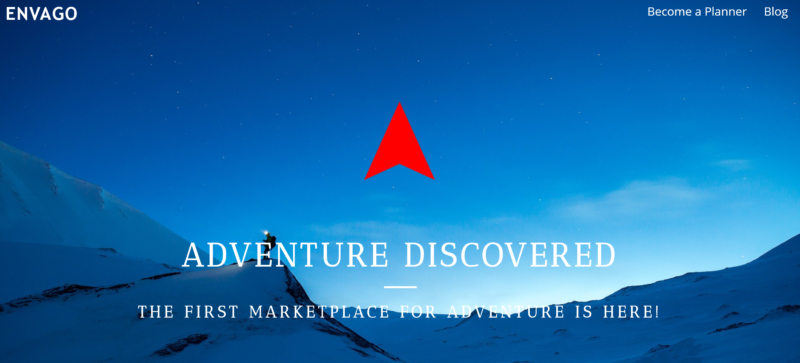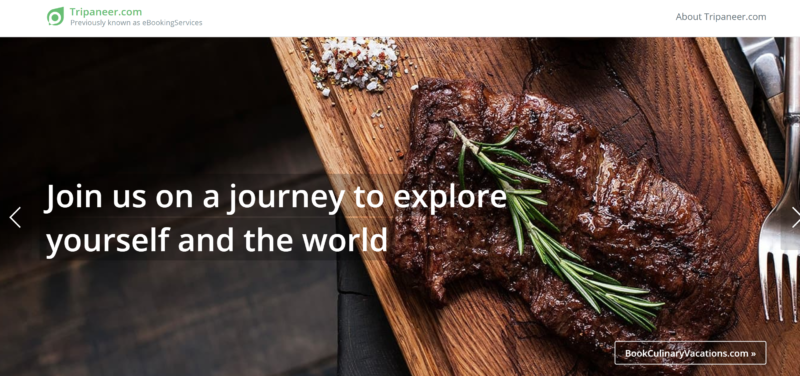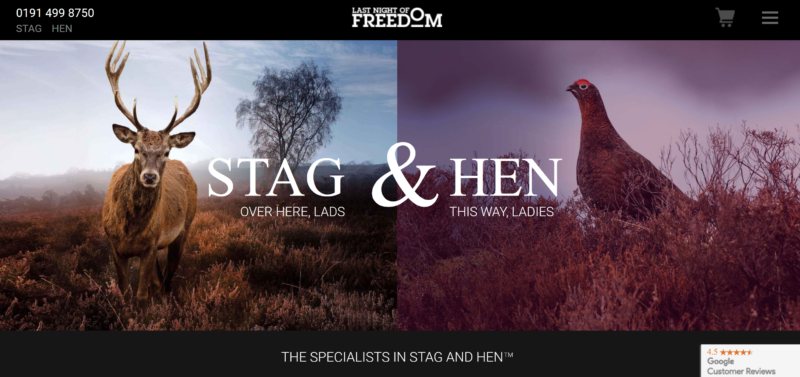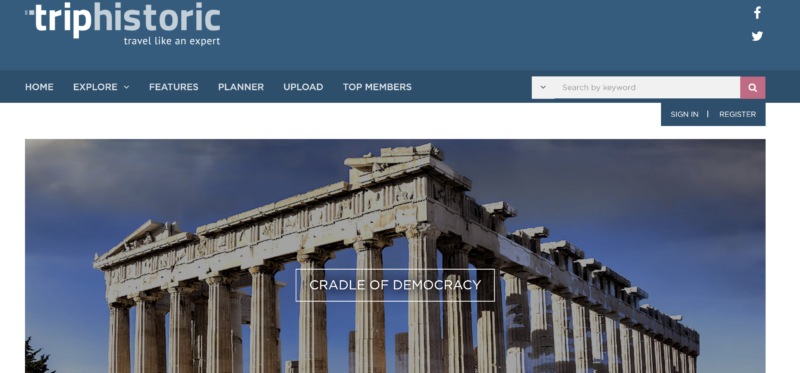Insight and Lessons Learned From Travel Industry Leaders
In a slight break from tradition, this week we're not going to be delving deeply into the work of a particular travel startup. Instead we're going to be looking at several in one go, deciphering trends and gaining insight from a selection of people who have been there and done it.
There are a few benefits to this approach. First of all, it means that you, the reader, can learn multiple lessons from a single read. Second, it'll be interesting to see if startups and established travel operators offer similar answers when faced with the same questions. Is there a consensus? Are there definitive dos and don'ts even with travel businesses operating in different niches?
First of all, let's introduce the travel companies and individuals that we've received comments and insight from:
- Lujaina Kharusi, founder of Envago - a marketplace app for adventure travel.
- Matt Mavir, founder of Last Night of Freedom - a popular Stag and Hen trip platform.
- Mike Lewis, founder and CEO of Trip Historic - an online travel guide for historical sites around the world.
- Robert den Hollander, founder of Tripaneer - a marketplace for themed trips, catering to all kinds of travel niches.
The first question we put to our esteemed travel industry leaders was about the challenge. The challenge of building a travel company from scratch and the biggest hurdles they had to overcome in those early days. Unsurprisingly, a few common themes came up. These included building relationships with suppliers, getting noticed and the familiar problem of finding enough hours in the day.
Dealing with time constraints
The first challenge was time. Startups are time intensive, whether or not they are in travel. And when the founding team have day jobs or other commitments, finding the hours and energy to get a new project off the ground can be difficult. That was the experience of Last Night of Freedom founder Matt Mavir.
Back in 1999 Mavir was a self-styled 'hoody-wearing, cider-swilling student taking business calls in his pants'. Since then, Last Night of Freedom has come a long way and its growing team has since organised more than 25,000 successful stag and hen weekends.
"The biggest challenge in the early days was having a full-time day job and trying to maintain a healthy social life," says Mavir. "I was 22 years old and the only way around it was to work my way through it. I’d get in from work at about 6:30 pm, have dinner and work on Last Night of Freedom until 2 in the morning."
The contrast between student life and the working world can be a shock for any recent graduate. "I didn’t completely abandon my mates, but I did have to limit nights out to weekends – and work all of Saturday and Sunday. This was also back in the days when I could still function with a hangover!"
It goes without saying that being able to put sufficient time into your startup is a necessary condition for success. A good idea can go to waste without the resources needed to get it off the ground; time is a fundamental part of that. That's why plenty of travel industry startups are projects that occur as part of a career change, as was highlighted in our recent interview with Wheels of Morroco.
Getting noticed
One of the common conundrums faced by travel startups is exposure. To begin with, most startups find that traffic in their niche is dominated by enormous marketplaces and long-established contenders. Getting around this is no mean feat, even if your core product is unique.
This is where budget constraints can come in, too. If you don't have the financial resources to pay for mainstream marketing that will put your brand directly in front of prospective travellers, how do you go about getting noticed? That was the biggest challenge faced by Mike Lewis at Trip Historic.
As he admits, "The biggest challenge for any new site, particularly a travel start-up, was simply getting noticed."
Lewis' project is a travel guide first and foremost, but with products to come it's easy to see how building a global audience could be the first step toward monetising that engagement. Either way, he has faced similar challenges to operators starting up in the hope of selling or aggregating tours and excursions. The key, we'd imagine, has been quality content. Quality content invariably speaks for itself.
"There are loads of established players out there as well as hundreds of new entrants, up and coming brands and blogs, so it can be hard to break through. At Trip Historic, we focused on our core proposition and the fact that we were dedicated to historic and cultural travel really differentiated us from other travel sites."
So far, so sensible. But how did Trip Historic get the ball rolling and build authority in the historic travel sector? "
We didn’t have any resources to call in a PR agency, so I just got online and on the phone" - Mike Lewis, founder, Trip Historic
"From there it was just about politely but persistently reaching out to people," he said. "We didn’t have any resources to call in a PR agency, so I just got online and on the phone. I was helped by the fact that so many journalists turn out to be massive history fans. We ended up getting coverage in a vast array of publications and even featured on the BBC."
Building a marketplace from scratch (and attracting sellers)
The two startups we've featured so far faced challenges that will be familiar to many in the industry: gaining exposure and finding the time to get things off the ground. Our next industry leader also had to grapple with a third issue: enticing sellers.
Adventure travel marketplace app founder Lujaina Kharusi started Envago knowing how crucial it would be to get sellers to pitch up in her marketplace. Without sellers, there would be no reason for customers to enter the website or download the app. With that in mind, it's no surprise that getting the supply side of the business sorted was the most important part of starting up and therefore the biggest challenge.
"Because adventure providers are busy running their business, it was hard getting them to look into Envago and actually register," she said. "And without them it was tricky to grow the demand side."
Read more: Building a Travel Marketplace - Pricing Strategy

So what was the solution? "I learnt that the best way to overcome this issue was for Envago to list on their behalf," she said. "It costs nothing for a planner to be listed on Envago, and we transfer all monies to the planner for each booking we take. It works for everyone, our customers have more choice of adventures and planners have a new channel to sell their products!"
Kharusi explains that as well as listing operators for free, Envago supports them with global marketing and PR; a sure way to get on good terms with sellers and populate a marketplace quickly.
Building the right team
Anyone starting up in the travel industry will quickly realise the importance of building a strong team. From what we've seen already it's clear there are plenty of potential pitfalls and many areas of expertise that need to be covered.

Because of that, Tripaneer founder Robert den Hollander suggested that the biggest challenge facing travel industry startups is finding the right people to share in the vision.
"Though finding the right people to join the team is always a challenge – no matter what stage your business is at – it was particularly difficult when we were first starting out," he said.
This is especially the case when your own investment is on the line. "To start Tripaneer, I had used my own capital, which means I had to be very cautious when it came to spending – and this certainly included operating expenses such as employee salaries."
"If I were to hire local (in this case Dutch) team members, I would have to spend a big chunk of my capital on this. So, I decided to search for alternatives. The best option I had found was to hire high-quality remote workers."
Den Hollander admits that this wasn't necessarily the most efficient way to recruit, but it certainly paid dividends in the long run. "By taking this option, it probably took a little longer for me to find the right people to initially join the team but knowing what I know now, I believe that it was the right step," he said.
"It allowed me to not only hire quality candidates who were less costly than if I were to hire locally, but also to invest my resources in developing our first set of travel theme websites.
Insight: What's changing in the world of travel?
People want to personalise their travel plans
We like to look ahead here at Travelshift - whether that's how different technologies will be used in the industry or how new trends are shifting the landscape. One recurring theme that we've seen in our interviews with industry leaders is the increasing level of customisation tourists are demanding.
On the one hand, this is because increasingly immersive travel is becoming increasingly trendy. Travellers want something memorable; a more personal experience. On the other hand, this shift is a result of the availability of choice. With marketplaces such as Last Night of Freedom offering a huge variety of destinations, accommodation and activities, groups can (and now expect to be able to) tailor their trip to the max.

Generic no longer cuts it, as Last Night of Freedom's Matt Mavir explains: "Everything is becoming a lot more bespoke – no-one is happy these days with a generic three-star hotel and unnamed activity centres."
As a result, he says that the company has shifted to "bring far more info upfront", increasing the ways in which revellers can adapt their trips to suit their needs.
The rise of augmented reality?
We've written at great length in the past about augmented reality and virtual reality, as two hot technology trends that could have a real impact in the travel industry. Virtual reality, in particular, could revolutionise the way hotels and resorts market their destinations. It could even give tourists a feel for a site or activity before they arrive.
There's no doubt that exciting opportunities lie ahead, especially as the technology continues to develop. Trip Historic's Mike Lewis is certainly an advocate for mixing the past with the future, and has plans to introduce augmented reality in his company's experiences.

"Augmented reality is a very exciting technology for us," he said. We work quite closely with a couple of different teams at Google and have already worked with them on a Google Glass app which aimed to bring the classic guided walking tour into the 21st century."
It's easy to see how a little technology could bring a historic tour to life. Just imagine glancing through your smart glasses and suddenly being transported to medieval Paris, or watching as a famous battle unfolds before your eyes.
Lewis admits that previously the technology hasn’t quite been capable of offering what he envisions. "But the idea of augmented reality fits our content perfectly and we believe it’s the next natural step for travel tech experiences."
And it seems there's big news on the horizon: "We are lucky enough to work with one of the most cutting edge companies exploring this technology at the moment – Niantic Labs, creators of Pokémon Go – and we’re working with them on their flagship Field Trip app," he confirmed.
Adventure travel and far-flung destinations
Envago's Lujaina Kharusi has built a business based on one of the travel trends that we've highlighted before: the unrelenting desire for adventure.
Adventure travel offers many of the things the modern tourist is looking for: fun, immersion, memories and adrenaline.
The adventure sector grew by 23% in 2015 alone and according to a report by Skift, operators in this niche have reported an average of ,000 spent per person and an average trip length of eight days. Big.
"Envago is built on perhaps the biggest of all emerging travel industry trends- the rise in adventure travel," said Kharusi. "In particular though, I am interested in Eastern European markets such as Croatia, Bosnia, Ukraine, Kazakhstan, and Georgia. They have spectacular nature that allows you to do many outdoor activities at reasonable prices.
She also suggests that adventure tourism will soon hit Africa in a big way, with Kenya, Tanzania and Rwanda likely to be the next popular destinations.
The rise of remote workers
Traditionally, people have taken holidays during the summer and winter breaks. This is especially the case for families with children and school term times to cater to.
But aside from the conventional family unit, the dynamics of travel timings are changing. This is partly down to the rise in remote working. In an increasingly connected world, rigid work days and office-based 9-to-5s are growing more scarce and more needless.

If you can work remotely, typing at your desk in the office seems unnecessary. The result is that people have more freedom to blend travel with work, blurring the lines between work, play, holidays and office hours.
This trend will have an obvious impact on the travel industry, according to Tripaneer's Robert den Hollander.
"With the rising trend of remote working, we are hoping that more and more people will not be tied down to certain holiday schedules in order to determine the ‘right’ time to travel," he said.
"This means that more people will have fewer constraints when it comes to planning their next holiday destination. They don't necessarily have to fit their travel within a certain schedule, as they have the ability to take their work with them while they are on vacation."
We are hoping that more and more people will not be tied down to certain holiday schedules in order to determine the ‘right’ time to travel" - Robert den Hollander, founder, Tripaneer.
In terms of how this could affect travel operators, "there’s a likelihood that travel will increasingly become a year-round activity with the demand for travel packages – including theme travel – is less likely to be affected by seasonality."
One final piece of advice
Our final question to each of our industry leaders was a simple one: If you could give one single piece of advice to people starting up in the travel industry, what would it be?...
Choosing your niche and sticking to it... (to a point)
As a provider of travel marketplaces, we like to think that we have some expertise when it comes to choosing a niche. After all, the first application of our marketplace software in Iceland has had incredible success.
"Pick your niche. Then decide how you’re going to do things differently and how you’re going to add value to an already crowded marketplace, and, then, formulate your mission statement." - Matt Mavir, founder, Last Night of Freedom
But having a focus doesn't only apply to setting up marketplaces.
Our industry leaders also highlighted the importance of having a target in mind when you setup, both in terms of customer and in terms of product. Clearly that relentless focus is vital, but it shouldn't be so rigid that change isn't possible when things aren't working out.
Last Night of Freedom's Matt Mavir has built a business on top of a very particular travel market. "Pick your niche," he said. "Then decide how you’re going to do things differently and how you’re going to add value to an already crowded marketplace, and, then, formulate your mission statement."
"Work ruthlessly, unapologetically and tirelessly to achieve it… But, also have the awareness to know when things aren’t working and when it’s the right time to pivot or cut the bait."
It makes a lot of sense to set up a travel company with a clear target market and focus in mind. The same can be said of any business. When starting out startups need to work with conviction, belief and focus. But if things aren't working out, they have to be prepared to pivot.
Envago's Lujaina Kharusi agrees. Travel startups (particularly marketplaces) should "focus on one or two markets and give the best experience possible."
The sentiment towards customer experience is an important one. If you're not focusing on crafting an offering that gives your first customers the trip of a lifetime, how can you ever hope to inspire loyalty and gain recognition?
Creating new products to add value to a travel marketplace
We've spoken before about how travel marketplaces need to create value to appeal to customers. Enticing offerings are all well and good, but packages and new combinations of services and products are what travellers want. In the case of Last Night of Freedom, the company has gone one step further.
As well as organising bespoke Stag and Hen trips, they have also become the UK's largest supplier of Stag and Hen costumes and accessories.
It's a move that's both smart and obvious. In one swift the company has become a one-stop-shop for stag and hen party organisers; the ultimate in bachelor party convenience.
Envago has a similar level of originality. Everything from trip browsing to purchase is done through an app - perhaps as a nod to the fact that more and more travel bookings are being made through mobile devices. This adds a layer of exclusivity and ease to the Envago service.
The platform also offers a connected group chat for travellers booking the same tour, so they can get to know one another before arrival. Nice touch.
Persevering and not being afraid to hear the word 'no'
More travel startups close down in the first year than go on to be successful, but the key is in having a strong foundation and a proposition that customers will buy into. With that in place, the world is your oyster - providing you're willing to overcome setbacks and persevere.
Trip Historic's Mike Lewis points out that "if you have a strong proposition, the barriers to entry are actually remarkably low."

"Before the internet, if you wanted to launch a new publication or business, you needed deep pockets and serious infrastructure. Nowadays, anyone can simply throw up a blog, launch a new site or fling themselves into the YouTube generation."
Just as important as that proposition is the persistence to follow it through. "When it comes to making an impact," he says, "you mustn’t be afraid to shout about it and just reach out to journalists and companies large and small."
"You don’t need to be a well-established brand with an army of staff to get noticed. If you’re offering something unique with a quality product then there’s no harm in reaching out to the biggest companies in the world – the worst they can do is say no."
You can always afford to be selective with your staff
Sure, expertise comes at a premium. But bear in mind the rise in remote working, freelancing and the potential open doors to employees offered by sites such as Upwork. All of these mean that it's easier than ever to build a team of quality individuals - whether you're looking for a freelance writer, marketing experts or a remote sales force.
It also means that you can work with people on short-term contracts until you find the right individuals to keep on for the long term.
Tripaneer's Robert den Hollander agrees: "Be selective when it comes to recruitment, as your employees are your greatest assets. It’s important that when you are looking to hire team members, you should be evaluating their values and character as much as their skills and competencies."
"Though it may mean that you will need to invest more time & effort in the short-term, in the long-term, you’ll likely to reap the rewards."
A travel startup is nothing without a committed and motivated team pulling in the same direction. "If you take your time and hire the right people, you’ll have the support you need in accelerating your business’ growth and success."
That's all, folks
Thanks for reading our collection of lessons and insight from travel industry leaders. We're committed to helping ambitious startups get ahead. That's the main reason for this post; we like to do our bit to help the community!

In case you didn't know, we also help the travel startup community in more tangible ways.
Our proven marketplace software helps travel startups build a successful online platform from scratch. Our proprietary solution combines SEO, community-driven content marketing, localisation and much more - giving you all the tools you need to aggregate suppliers in your chosen niche and start a thriving travel business.
Get in touch with us today to find out more - or read more about our software solution.
Thanks again to Lujaina Kharusi, Matt Mavir, Mike Lewis and Robert den Hollander for sharing their insight and experience with us and the travel community.